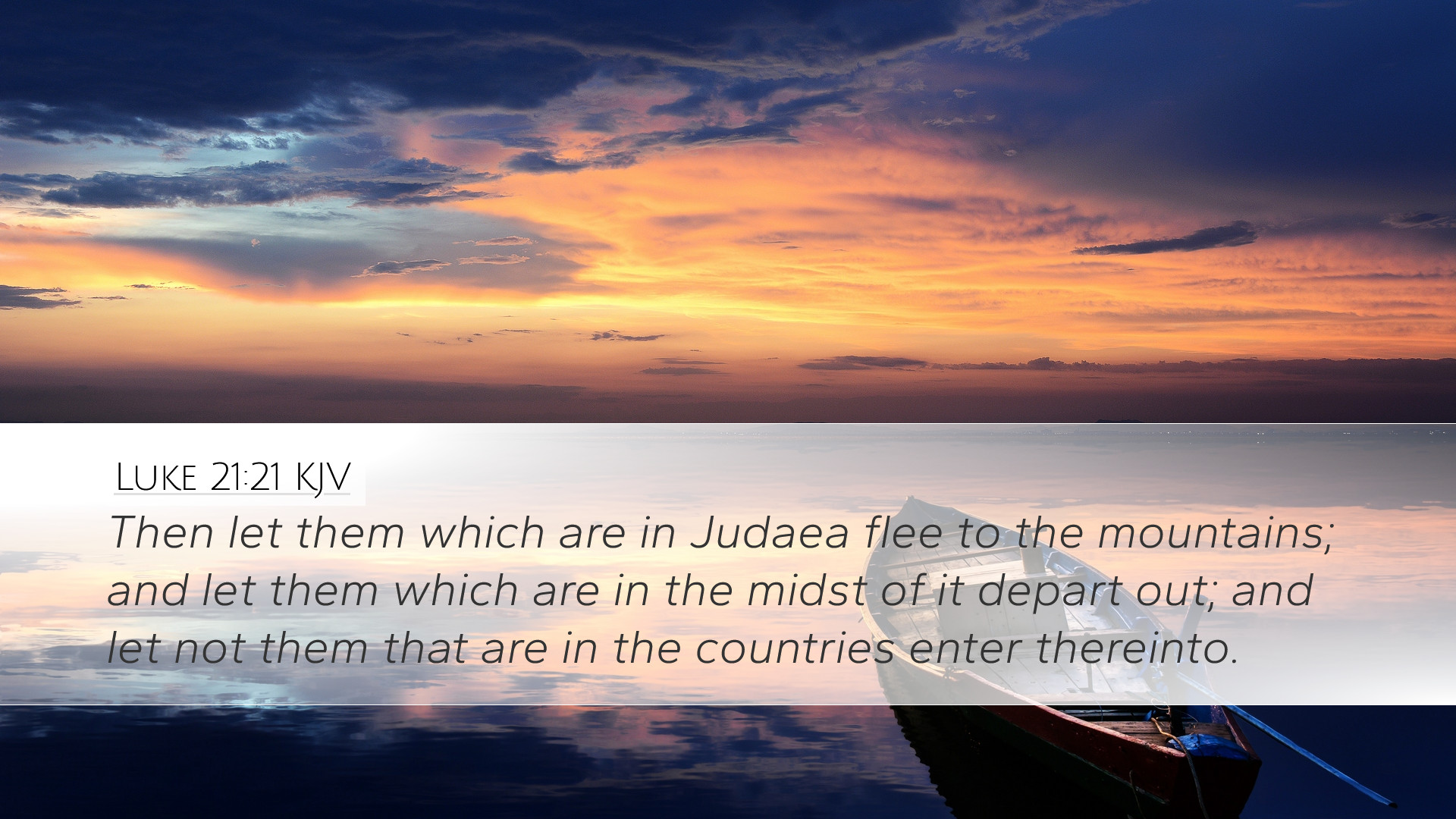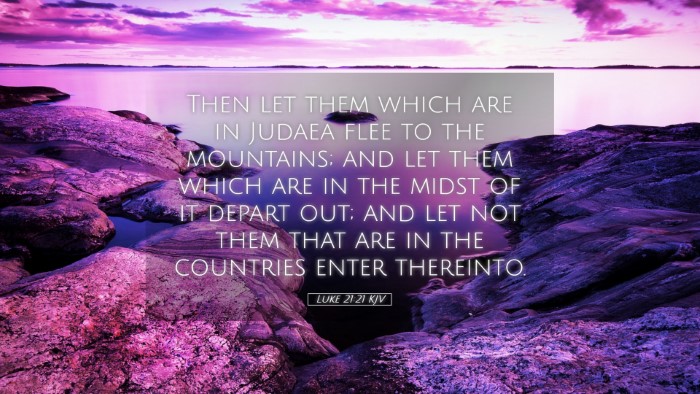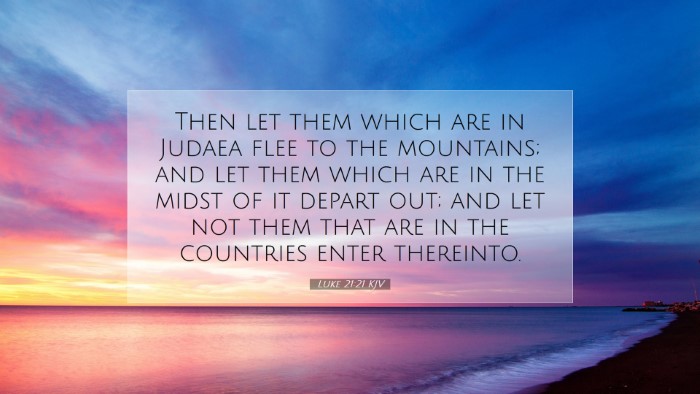Bible Commentary on Luke 21:21
Verse: Luke 21:21 "Then let them which are in Judaea flee to the mountains; and let them which are in the midst of it depart out; and let not them that are in the countries enter thereinto."
Contextual Background
This verse is part of Jesus’ eschatological discourse, often referred to as the Olivet Discourse, recorded in Luke 21. The discourse foretells the destruction of Jerusalem and the signs of the end times. It is essential to understand that Jesus is addressing His followers, warning them of impending dangers that would befall Jerusalem.
Matthew Henry's Commentary
Matthew Henry emphasizes the urgency of Jesus’ words. He interprets the call to "flee to the mountains" as a directive for believers to take decisive action. By advising those in Judea to escape to the mountains, Henry suggests that Jesus is providing a practical escape plan for His followers during tumultuous times. The mountains are seen as places of refuge and safety, symbolizing spiritual strength and protection.
Furthermore, Henry highlights the importance of heedfulness to the signs given by Christ. He comments on the spiritual readiness expected of believers, interpreting this imminent escape as a metaphor for the spiritual vigilance required in the face of tribulation.
Albert Barnes' Commentary
Albert Barnes provides a detailed geographical and historical context to the verse. He explains that fleeing to the mountains would have been a familiar concept for the Jewish people, escaping to the hilly and less accessible terrains to avoid danger. His exegesis reveals that Barnes strongly believes the statement reflects not only physical escape but also a spiritual admonition to detach from worldly attachments.
Moreover, Barnes notes the timing of this advice, correlating it with the Roman siege of Jerusalem. He underscores the tragic fate of those who were not aware of the impending siege and further relates it to broader themes of separation from worldly comforts during times of crisis—depicting the need to prioritize spiritual over physical safety.
Adam Clarke's Commentary
Adam Clarke approaches this verse from a linguistic and thematic perspective. He explicates the phrase “let them which are in the midst of it depart out” as a directive calling for immediate and decisive action. Clarke analyzes the urgency embedded in the verb forms, referring to the need for rapidness in their response.
Clarke further reflects on the spiritual implications of this flight. He states that the call to flee signifies a need to withdraw from a corrupt system—symbolically representing the broader escape from sin. He encourages readers to view Jesus’ warning as a call to disengage from societal norms that conflict with spiritual commitments.
Theological Insights
This verse touches on profound theological themes such as the nature of divine judgment, the consequences of national sin, and the providence of God in times of distress. The command to flee is an acknowledgment of God’s sovereignty and the responsibility of believers to respond to divine warnings. This can be seen in the broader context of prophesies about Jerusalem, where Jesus prophesizes its destruction due to unrepentant sin.
Additionally, this verse compels scholars and theologians to reflect upon the interplay between God's judgment and human agency. The call to action presupposes that followers of Christ bear a certain responsibility to heed divine warnings and act accordingly.
Application for Believers
For contemporary believers, Luke 21:21 serves as a vital reminder of the need for discernment and responsiveness in our spiritual journey. The urgency woven into Jesus’ words beckons modern Christians to assess their surroundings and align themselves with God's purposes amidst societal turmoil.
- Spiritual Vigilance: Like the early disciples, believers today must remain vigilant and attuned to God's signs.
- Community Support: The call to flee emphasizes the importance of communal action—followers of Christ should support one another during crises.
- Escaping Worldliness: The command symbolizes a need to escape from worldly distractions and focus on spiritual truths.
In conclusion, Luke 21:21 encourages profound reflection and action among believers, fostering a readiness to respond to God’s leading, especially in times of spiritual and societal crisis.


